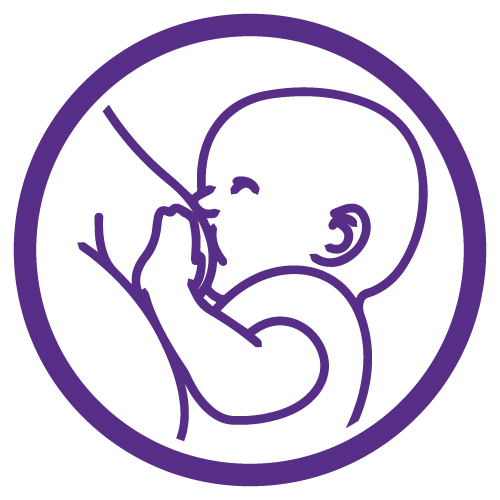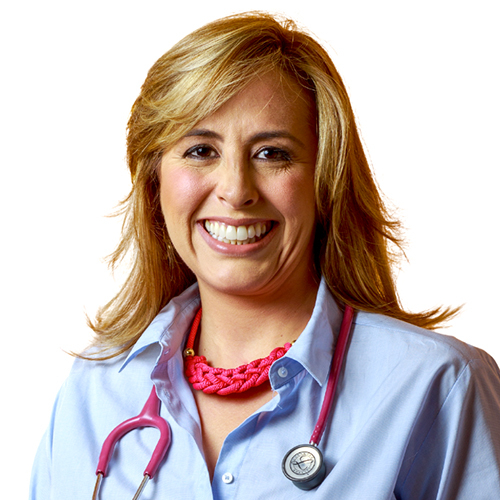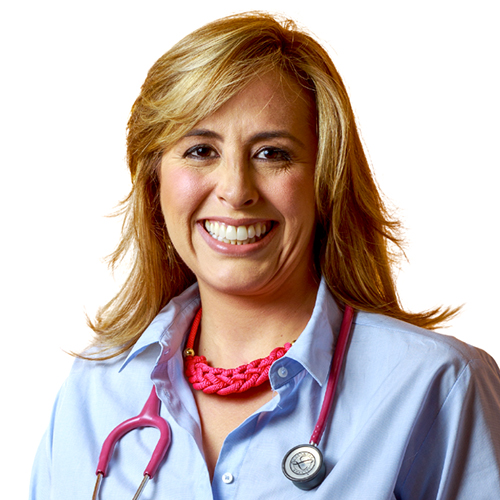 Slow Weight Gain Online Course(s) & Continuing Education
Slow Weight Gain Online Course(s) & Continuing Education
Access the latest clinical skills and research for Slow Weight Gain for Lactation & Breastfeeding professional training. These Slow Weight Gain online courses provide practice-changing skills and valuable perspectives from leading global experts. This Slow Weight Gain education has been accredited for a variety of CEUs / CERPs and can be accessed on-demand, at your own pace.

A Balancing Act: The Clinical Use of Scales With the Breastfed Infant

Topic: The Evolution of Lactation Aids: From Nipple Shields to Silicone Collection Cups and Beyond - [View Abstract]
Weighing of babies dates back to ancient Egypt times, but scales and measurement of babies became more widely used in the 18th and 19th century. Fast forward to the 21st century and the use of the neonatal scale has taken on a life of its own in developed countries. Many families of healthy, low risk newborns own a scale at home; it might even be built into their changing table. IBCLCs, pediatricians, and family medicine doctors also have access to infant scales for clinical use. How has the use of scales changed lactation support and parents’ perceptions about lactation progress? Are there ways to refocus on the basics of lactation and infant care without over-reliance on the infant scale as a tool?
In this presentation we will examine the practical, technical and proper use of infant scales for the clinician. We will discuss the appropriate timing of scale use as well as describing times at which scale use might be detrimental to the dyad. We will look at common pitfalls with scale usage and how best to avoid or navigate them with a family. We will cover ways to educate and empower parents with tools for evaluating their child’s well-being throughout the lactation journey without the use of an infant scale.

View Details / Enroll

Building Bridges: Early IBCLC Recognition and Triage of Common and Life-Threatening Newborn and Maternal Pathology

Topic: How Low Is Too Low? Managing Newborn Hypoglycemia - [View Abstract]
IBCLCs, often with limited education in newborn medicine and obstetrics, care for the infant-parent dyad within the context of a complex healthcare system staffed by providers with variant training in breastfeeding medicine. This is an interaction filled with knowledge gaps and fraught with the possibility for misunderstanding and dangerously missed diagnoses. I plan to combine my training in general pediatrics and my clinical experience as a pediatric ER physician with my IBCLC training. I will teach conference participants about medical emergencies when caring for the breastfeeding newborn and the post-partum parent so that they can recognize clinical scenarios presenting to their care that require immediate medical assessment. The presentation will focus on high-yield topics in newborn medicine and postpartum obstetrics to deepen the IBCLCs recognition and ensure appropriate ongoing care for common and life-threatening complaints. It will include a discussion of neonatal jaundice, neonatal fever, severe weight loss, pyloric stenosis, congenital birth defects and genetic disorders; the lecture will also address postpartum depression, post-operative infections, and postpartum preeclampsia. Armed with this understanding of clinical red flags, IBCLCs will be empowered to better care for their breastfeeding patients, while also understanding when immediate medical assessment is imperative.

View Details / Enroll

Care Plan Development for Weight Concerns in the Breastfed Infant: A Family Centred Approach

Shel works part time for the NHS in northwest England, and has four adolescents.
In addition to this, she runs a small private IBCLC practice specialising in the unsettled baby, those with faltering weight and those who are formula fed, and also holds a variety of consultant and trustee roles in various national and international organisations for advocacy and education around infant feeding; these include being Clinical Director for the breastfeeding support app AnyaHealth, being co-chair of Nursing Matters, an advocacy organisation for the breastfed infant, and being vice-chair of the UK Association for Milk Banking.
Shel has been on the development committee for 3 NICE guidelines including one on Faltering Growth, has co-authored 3 Cochrane systematic reviews, and written a book “Why Infant Formula Feeding Matters” (2022). In 2021 Shel began work towards a PhD in further understanding how best to support families with unsettled babies in universal services, which she conducts part time alongside her other commitments.
She teaches in person and online, both in her NHS role and in the consultant roles, and thoroughly enjoys sharing the knowledge she has acquired to improve the experience of families everywhere.
Understanding how to develop effective and supportive evidence-based care plans for babies whose weight and/or growth is faltering, is absolutely key to the toolkit of those who are working with breastfeeding babies. Find out more in this presentation.

View Details / Enroll


Mary Ryngaert is a Pediatric Nurse Practitioner since 1987 and an International Board-Certified Lactation Consultant since 2000. She received her MSN in the Primary Care of Children at Catholic University in Washington, DC. In her clinic at the University of Florida, she sees families for breastfeeding issues for the duration of the breastfeeding journey and provides education for pediatric residents. She is active in the local breastfeeding coalition and serves as a consultant/coordinator for the hospital Baby Friendly program. She has a special interest in supporting the development of peer counselors, especially women of color, to provide breastfeeding support within the community. She served as the Chair for the National Association of Pediatric Nurse Practitioners (NAPNAP) Breastfeeding Special Interest Group for six years and is a delegate to the US Breastfeeding Committee for NAPNAP . She was a co-author for the 2018 update to the NAPNAP Position Statement on Breastfeeding.

View Details / Enroll

Differentiating Normal Newborn Weight Loss From Breastfeeding Failure

Micaela Notarangelo, PhD, IBCLC, RLC, obtained her IBCLC certification in 2010. She has a private lactation consultant practice in Lerici, Italy and takes a particular interest in everything that concerns breastfeeding science and medicine. From 1992 to 2001, Micaela lived in Japan, where in 1998 she earned a PhD in Economics at Hokkaido University, Sapporo. She also worked as assistant professor at Hokkaido University and Utrecht University. After returning to Italy, she became a La Leche League Leader in 2005 and was the Area Professional Liaison of LLL Italy from 2010 to 2013. In 2017, together with Chiara Toti, IBCLC, Micaela has developed a new two-day course for health care providers about breastfeeding support for babies with lip and/or palate cleft. The course has been held, with the financial support of Aismel, a parents' association, in several major Italian hospitals.
There is increasing concern for the risk of hypernatremic dehydration (HD) in infants breastfeeding poorly, and weight loss (WL) is often considered a key variable in deciding whether to supplement a newborn. However, WL is the net sum of different forces, and it might be difficult to determine which actions will be the most effective in protecting both the baby and breastfeeding. This presentation will review the newest scientific evidence about WL, and by a comparison of the results of previous quantitative studies will provide a more comprehensive framework to interpret weight changes and feeding behaviors that can be suggestive of an increased risk of HD, in order to facilitate the detection of infants who can benefit from additional breastfeeding support and those who might eventually require supplementation. The data confirm that both birth and breastfeeding perinatal practices have influence on WL and the risk of HD, and are therefore important modifiable factors to improve breastfeeding outcomes.

View Details / Enroll

Expected Weight Changes After Birth for Full-Term, Breastfed Newborns

Dr. Diane DiTomasso achieved a Diploma in Nursing from Newport Hospital School of Nursing; a Bachelor of Science in Nursing, a Master of Science in Nursing Education, and a PhD from the University of Rhode Island. She is an Associate Professor at the University of Rhode Island College of Nursing.
Her research focus is human lactation and infant weight. She has multiple publications in journals such as Journal of Gynecologic & Neonatal Nursing (JOGNN), Journal of Human Lactation, Journal of Perinatal and Neonatal Nursing, and Nursing for Women’s Health and has presented her work nationally and internationally.
Dr. DiTomasso has received various honors and awards with the most recent being the 2020 Suzanne Feetham Nurse Scientist Family Research Award by the Eastern Nursing Research Society (ENRS) and the 2020 Best of JOGNN Award as first author of the article, “Systematic Review of Expected Weight Changes After Birth for Full-Term, Breastfed Newborn. She has served as Principal Investigator for a variety of neonatal research studies. Dr. DiTomasso is a member of AWHONN, the International Lactation Consultant Association, the Eastern Nursing Research Society, and Sigma Theta Tau International. She currently serves as a Member on the AWHONN Research Advisory Panel.
This presentation will summarize the findings of recent studies on neonatal weight changes that occur in the early weeks of life among full-term, breastfed newborns.
Data Sources: Using the keywords breastfeeding, newborn, infant, weight, weight loss, and growth, we searched PubMed, Cumulative Index of Nursing and Allied Health Literature, Cochrane Library, and MEDLINE for primary studies and secondary analyses. We also reviewed the reference lists of retrieved articles. Study Selection: Quantitative studies published in the English language from 2015 through 2019 that focused on newborn weight changes. From a total of 827 records initially screened, we included 11 studies in this analysis.
Data Extraction: Two authors independently reviewed the selected articles with the use of the Johns Hopkins Nursing Evidence-Based Practice Synthesis and Recommendations Tool. To determine evidence levels and quality ratings, we evaluated the consistency and generalizability of study results, sample sizes, study designs, adequacy of controls, and definitive nature of the conclusions. This presentation will discuss the finding of this study related to expected weight changes after birth for full-term, breastfed newborns.

View Details / Enroll

Healthy Babies: What We Can Learn from Infant Growth Charts

Dr. Gangal is a Pediatrician, Breastfeeding Trainer & Advocate in Mumbai for 30 years. He has been Mother Support-Training Coordinator of BPNI Maharashtra (1995), Co-Coordinator of Mother Support Working Group of WABA (2003) & Lactation Consultant (2009). He was chairman of Global Collaboration Committee of ILCA (2018).
He was trained by Dr. Felicity Savage. He established the first Mother Support Group in India (1995) and played a key role in training 500 Traditional Massage Women, Breast crawl rejuvenation, training Government Health Workers in 7 Indian States with an innovative module with UNICEF and organizing IBLCE exam for the first time in India (2009). He contributed to LLLI publication ‘Hirkani’s Daughters’, facilitated Lactation Counselling in 85 Maternity Facilities, organizing 8 batches of Lactation Education to facilitate about 100 Lactation Consultants, the creation of the Android app ‘Shishuposhan,’ and played a major role in launching the website www.bpnimaharashtra.org.
Dr. Gangal has multiple publications & was a speaker at LLLI conferences in San Francisco and Chicago. He was honored with Dr. N. B. Kumta Award by BPNI Maharashtra, Lifetime Achievement Award by Mumbai Breastfeeding Promotion Committee & WABA Secretariat award. He spoke on Breast Crawl & WHO Growth Charts (2016) at GOLD Conferences.
Infancy is a period of rapid growth & development. Any adversity has a profound impact on physical, mental & psychological outcomes for entire life. Growth Charts are the meter of infant’s Nutrition-Health-Nurturing & reflect any adversity. Hence, tracking infant growth is important.
The World Health Organization (WHO) released new international growth standards in 2006 to monitor growth of children 0-59 months of age. All Health Care Providers should use these charts to complement Infant & Young Child Nutrition (IYCN) Counselling. Every growth chart has a story to tell. I found WHO growth charts to be accurate and extremely useful for knowing past events and use the information to promote optimal growth and development in future. Every contact with the child in general & especially immunization is an opportunity to discuss nutrition & development. The concepts of Severe Acute Malnutrition and Mild Acute Malnutrition (SAM-MAM) need to be understood.
The Infant feeding professionals should also understand science behind WHO Growth Charts and how to use this information for ideal IYCN Counselling. Prematurely born infants need different charts for monitoring growth during infancy & experts need to be aware about the current concepts & opinions of monitoring growth of Premature & Low Birth Weight infants. Impact of individual components of breastmilk on growth is the new science frontier.

View Details / Enroll


Pamela Morrison has worked with breastfeeding mothers and babies for 30 years. She served as a La Leche League Leader in Harare, Zimbabwe from 1987 before certifying as the first IBCLC in the country in 1990. She worked in private practice until 2003, before moving to Australia and then to England. She served for many years on the Zimbabwean National Breastfeeding Committee and on the BFHI Task Force. She has subsequently served as Co-coordinator of the WABA Task Forces on Infants Nutrition Rights and on Breastfeeding and HIV. Pamela continues to write and speak for the preservation and protection of breastfeeding in challenging situations.
In biological terms, successful breastfeeding demands that the baby survives and thrives on his mother’s milk. “Not-enough-milk” (either real or perceived) has long been recognized as the most common reason why mothers abandon breastfeeding. Ways to identify for the mother whether a baby is “getting enough” are discussed. The causes of inadequate breastmilk intake include physiological/anatomical conditions in mother/baby, poor lactation management or other more obscure causes. While planning interventions to enhance breastmilk production and improve infant intake, it is important to protect the baby’s nutritional status. Simultaneously implementing strategies to increase the mothers’ breastmilk supply while caring for a high-need baby can be immensely challenging. Each client will need constant support, reassurance and re-evaluation. Turning such a difficulty around, with the goal of eventually returning to exclusive breastfeeding, can be one of the most fulfilling and rewarding situations that an IBCLC can work with.

Slow Weight Gain in the Early Days of Breastfeeding

Patricia Díaz L., Woman passionate about accompanying Women and Families through their Conscious and Connected gestational, birthing and parenting journeys. She is a trained Pediatrician, IBCLC and Doula. Graduated as a Surgeon physician and Pediatric Specialist from the Central University of Venezuela, at the main Children’s Hospital of the country; JM de los Ríos. From her formative years, she fell in love with the dynamic process of Breastfeeding and the unique physical, nutritional, immunological, qualities of it, along with the transformative emotional and spiritual bond that formed between the new parents and their baby: "Being a witness to that first magical and intimate human contact, is one of the most wonderful sensations in the world; I have ever experienced”. Dr. Patricia Díaz graduated as Promoter and Consultant of the Lactation Center ""Mi Gota de Leche” ( “ My Drop of Milk” ) at the Hospital J.M. de los Ríos, with the endorsement of UNICEF. She was part of the First Cohort of Diplomats in Breastfeeding and Complementary Feeding Practices, of the Faculty of Medicine, at the Central University of Venezuela. Member of the American Academy of Breastfeeding Medicine (ABM) and the International Lactation Consultant Association (ILCA). Trained as a Doula, at the Auroramadre Center in Venezuela. National and International speaker. With more than a decade of experience, Patricia, strongly advocates for Human Lactation Education, at her private practice in Venezuela, where she currently is the Chief of Pediatrics at La Trinidad Medical Teaching Center. At this center, she has co-designed the Respectful Birthing Protocol (to honor the Sacred Hour, Skin to Skin and Rooming in; most recently updated alongside Neonatology Department, to adjust it for COVID19 context). Also through her social media platform @PediatríaAutana (Tree of Life), she educates, advocates for Breastfeeding families and designs educational tools for Parents and Caregivers, Families and Teachers, in the most innovative formats, adjusted to their needs, concerning topics associated with Prenatal Prolactation Prep, Human Lactation, Parenting, Growth and Neurodevelopment, Pediatrics.
Topic: Slow Weight Gain in the Early Days of Breastfeeding - [View Abstract]
The early days of a breastfeeding journey, especially if it is the first one and there is not enough breastfeeding culture or support of the new family, bring challenges and risk factors for an unwanted early termination. Among all the causes for an early abandonment of exclusive breastfeeding, there is the ghost of insufficient milk supply, associated in popular belief (and unfortunately) sometimes also in professional health provider’s belief, with little or no evidence-based information on human lactation.
In order to make an appropriate and timely approach to a slow weight gain baby, we must take into consideration anatomical, functional and behavioral/emotional factors. Learn more about how to establish an appropriate nutritional diagnosis, based on the use of globally standardized anthropometric index, for exclusively breastfed children, factors that may contribute to a misperception of slow weight gain in a breastfed child, the difference between failure to thrive and slow weight gain and how to establish safe nutritional recovery strategies, focused on the dyad and aimed at preserving breastfeeding.

















